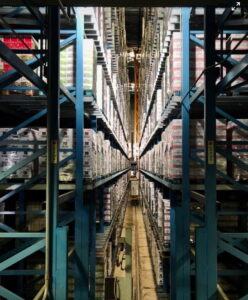Ever since American physicist Richard Feynman and Russian mathematician Yuri Manin proposed the concept of quantum computing in the 1980s, there have been a lot of talks, discussions and research around it. Despite all the buzz around quantum computing, leading classical computer chip makers like TSMC, Global Foundries and Intel Corp are still manufacturing microchips for supercomputers. One now wonders if those who promote quantum supremacy are merely building castles in the air.
Keep in mind, however, that the essence of researching, designing, developing and commercializing quantum computers is for them to solve puzzles, which today’s digital devices cannot solve and achieve that feat at a breakneck speed. Little wonder they process and store data in quantum bits (qubits) as opposed to conventional devices’ binary digits (bits). With properties like superposition and entanglement, there is no denying the fact that quantum computers will be fully commercialized sooner rather than later. So, in this article, you will learn the real things you can do with the innovative technology.
What Does a Quantum Computer Do?
Explained briefly as some of the things you can do with a Quantum Computer in the near future
Improving complex manufacturing
One of the key areas these computers will be critically useful is in simplifying complex manufacturing. Some companies embark on complex manufacturing that often results in data sets on operational failures. With quantum computers, these operational failures can be easily translated to combinatorial challenges. Next, with the aid of quantum-inspired algorithms, it becomes easy to spot the actual part of the production process that failed. This issue is common in the production of microchips that involves lots of steps before the finished product is churned out. The innovative computing devices will solve the large-scale combinatorial problems faster and cheaper, thereby saving microchip-manufacturing companies lots of money. IBM is already exploring how to apply the technology in this area.
![]()
For better weather forecast
What if your weatherman could do a better job than he currently does? Wouldn’t that help you make a more informed decision? It certainly would!!! Yes, that’s one of the things quantum computing would bring to the table in the future. In truth, supercomputers have done an excellent job with predicting the weather outcomes, but they aren’t without failures. This is often the case when they are used for forecasting long-range weather predictions. The reason is that they cannot accurately ingest all the data needed to give an accurate prediction. Given quantum computers’ ability to accurately simulate particle interaction to predict behavior, the world will experience a much better weather prediction with them. This explains why the European Centre for Medium-Range Weather Forecasts (ECMWF) teamed up with IT firm Atos to launch extensive research into better weather prediction using quantum computing.

Better language processing
Our world will see experts deploy quantum devices in language processing in no distant time. The reason is that – for decades – researchers have unsuccessfully tried to teach classical computers how to associate meanings with words and make sense of an entire sentence. You see, sometimes, languages can be complicated because you cannot determine the meanings of sentences by merely summing individual words. It gets even worse when you are dealing with humors, sarcasms or connotations. However, linguists are liaising with quantum computer experts to explore how they can overcome the hurdle. In short, there are strong indications that this emerging technology will be able to achieve that feat in the future; this is known as quantum natural language processing (QNLP). Already, Cambridge Quantum is on the verge of proving that sentences can be parameterized on quantum devices to give such meanings.
Enhanced logistic support
What’s more, the logistic industry has seemingly intractable issues when they are analyzed using classical devices. This is common in the management of the global fleet of merchant vessels. Think of it like a simple salesman who keeps getting orders to supply products to many countries, on a tight deadline and not sure of the best routes to deliver the products. The best route, in this context, has to be safe as well as save travel time and transportation cost. However, with multiple routes in the calculus, optimizing the supply chain becomes extremely challenging. Remember, customers expect that their products be supplied within strict deadlines. To tackle this issue, American energy giant ExxonMobil has teamed up with IBM to develop a quantum algorithm for it. Once successfully developed, this will help deliver about 50,000 ships laden with 200,000 containers each with a total value of over $14 trillion worldwide.

Protecting sensitive data
Although today’s computers have cryptographic mechanisms for protecting sensitive data, experts believe that such data will be compromised when quantum computing comes into full commercialization. This means that unauthorized persons can hack the secret keys used for safeguarding such data. To circumvent secret key architecture, the hacker will accurately work out the outcome of the cryptographic keys. However, quantum computers can still stop this from happening using randomness (random number generation). Randomness makes it impossible for anyone to accurately predict the secret keys using reverse engineering or any powerful supercomputer. This is the vision of a UK-based quantum computing company, Nu Quantum, which is looking to develop a system that can measure the behavior of quantum particles. In the end, they can generate random numbers used for building robust cryptographic keys, thus making such keys impossible for unauthorized persons to bypass.

Final Thoughts
Having come thus far, you no longer have to wonder, “What can quantum computers do?” The reason is that this article has explained that in detail. No doubt, they can do much more than we can understand today. This is particularly because lots of companies and government agencies are working hard to better understand how they can apply quantum computers to solve global problems, especially for those puzzles that today’s digital devices haven’t been able to solve. Given their unparalleled speed and powerful computational capabilities, quantum computers are poised to revolutionize our world in more ways than one. Therefore, it is critical to prepare our minds for the unprecedented changes they are about to bring in all walks of life.
